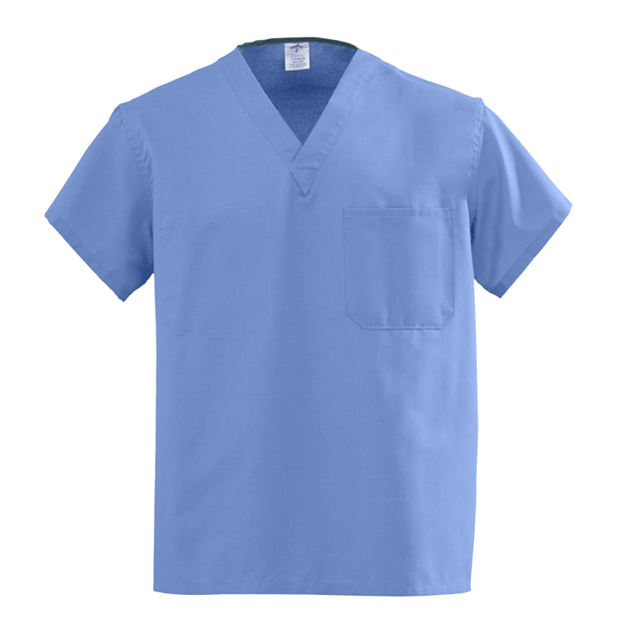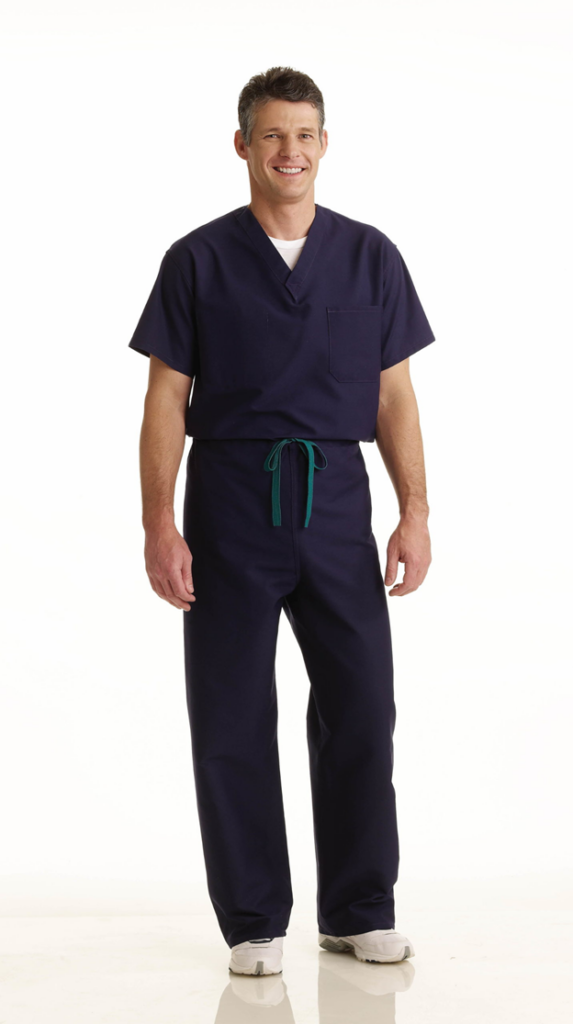
It’s an exciting time. The end of your training in nursing school is approaching, and you’re eager to embark on a new career. But perhaps you’re also a bit anxious about discovering what it’s really like to become a nurse on a full-time basis? Maybe you’ve heard about how many new nurse graduates drop out during their first two years on the job due to the demanding transition from student to staff nurse.
First, take some comfort in knowing everyone has these feelings as they approach graduation. Then be sure to prepare yourself for the new life experiences that await you. Having said that, here are some tips on how to survive your first year of nursing.
Getting Ready
A career as a healthcare professional is as demanding as it is rewarding, especially when you’re starting out. But by anticipating what the challenges are, and taking a few pre-emptive measures to address them, you can ensure that your time wearing a nurse uniform is a long and fulfilling one.
Know the lay of the land
Working in a hospital environment for the first time can be as overwhelming as visiting a foreign country, and it comes with the added pressures of patient care. If possible, limit the effects of culture shock by working or training in the locale where you’ll be a staff nurse, before graduation. By familiarizing yourself with the rules, procedures, and interpersonal dynamics particular to your future place of work, there’ll be that much less to overwhelm you when you’re starting the job.
If you can’t train at a place of employment before the job begins, try to be an observer there for at least a few hours to get a good sense of what the work environment is like. And, before accepting any job offer, find out what the employer’s turnover rates for nurses are. Anything above 20% is considered high, and may be an indicator of how well or not the employer supports new nursing staff.
Be willing to be taught
As much as you may think you already know, there’s always still more to learn. First-year nurses need to be open to being taught and learning as much about the job as people are willing to teach them. The more open you are to learning, the better you’ll get to know the job. The harder you make it for anyone to teach you, the more you’ll miss and need to learn at a later, much less opportune, time.
Have confidence in yourself
At the same time, though, you should also be confident. Patients and coworkers alike can easily spot someone who isn’t confident in themselves or their skills. When that person is expected to administer medication and stick needles in people, skittishness or extreme reservation have a way of sapping the confidence other people have in them (especially if you’re the one who’s about to get stuck with the needle). Be confident in what you do know, and don’t be afraid to stand up for yourself if confronted.
Start on a unit that will help you ease into things
Being responsible for patient care is demanding enough under any circumstances, but there are certain wards that might be better suited for a new staff nurse than others. If you can, try to start in a specialty unit with a narrow type of patient population, as they’ll typically present you with a narrower range of problems. For example, it might be easier to learn the ins and outs of a coronary-care unit or a labor and delivery ward, as opposed to a med-surg ward with patients ranging from teenagers to octogenarians and representing the entire gamut of health issues in Surgery and Internal Medicine.
Learn to advocate for your patients
Patients have to trust their nurses, and it’s the job of a nurse to advocate for their patient’s best medical interests. If you have a suggestion for caring for a patient, or questioning a doctor’s decision, speak up.
Be respectful of the doctors

Sometimes doctors and nurses will disagree, but, even when that happens, it’s important to be respectful of doctors’ decisions. Strain between doctors and nurses can hinder patient care, especially when the strain escapes the private meetings between doctors and nurses and makes its way in front of the patients.
Have a place to vent
No one has ever claimed that nursing isn’t a stressful job, and you will definitely need to have a place to go where you can let off some steam. Make friends with your colleagues, and find a place where you can go on your downtime to vent and let some of the stress out. It might not be the most dignified thing to do, but it’s definitely better than trying to hold it in.
Ask for help
Asking for help is never easy, especially if you feel like you have to do it all the time. But sometimes asking someone else to help you is the only way to learn, and being big enough to seek out help is a lot better than just muddling through or putting something off because you don’t want to embarrass yourself.
Expect to be given more work in the future
Nurses are at the center of patient care, which means that there will always be work for them to do. The further into your first year you get, the more your workload is likely to increase, simply out of necessity. Be prepared for more work to come your way as soon as the doctors and nurses around you expect that you are able to handle it.
Don’t tell anyone you’re having a quiet shift
If you happen to find yourself having a quiet, relaxing shift, telling them about it is a great way for that peace and quiet to disappear under a pile of new assignments and patients.
Find your mentors
As early as possible, find the people who are responsible for explaining things to you. Who will oversee your orientation? Does your employer sponsor a preceptor program? Who can you turn to at work for social, clinical, and emotional support? Whatever the situation, don’t be afraid to ask questions. Everyone had to start out at some point, and those who remember their early experiences might be invaluable in helping you whenever you might not be sure about something. Lean on the people who know, and remember, it’ll take months for you to truly get your bearings.
Develop good habits
Ask your mentors and those more experienced than you how they keep up with all the demands that present themselves over the course of a shift. For example, some nurses advise taking care of documentation as soon as possible, instead of waiting to do it at the end of your shift, because by then you may well have forgotten certain details. Others suggest keeping a diary on hand, in which you can record actions that need to be taken, and questions you’ll want to find the answers for later—otherwise, given all the unexpected issues that can crop up while on duty, you may lose track of certain tasks and objectives.
Plan your break
It’s not just the hours and physical toll that you need to keep in mind, it’s the mental exhaustion that comes from constantly being exposed to new information and situations. Get plenty of sleep when your shift is over, but even with appropriate periods of rest, recognize you’ll still probably need to take a break about three months into the new job. Plan for this eventuality by arranging to have vacation time during this period. That way you’ll have a chance to recharge your batteries before burnout becomes a factor.
Medical Uniforms—Helping to Keep Patients and Employees Safe

In healthcare settings, safety is a top priority—for both patients and employees. Medical uniforms, including nursing uniforms, play a critical role in maintaining safety by reducing contamination risks, protecting healthcare workers, and supporting overall hygiene standards. As a nurse, it’s important to be aware of the full range of benefits that high-grade uniforms can provide in a medical setting.
Here’s a closer look at the key safety benefits of medical uniforms and why investing in high-quality, professionally managed attire is essential for any healthcare facility.
1. Reducing Cross-Contamination Risks
One of the primary purposes of nurse uniforms and other medical attire is to minimize cross-contamination. Healthcare workers are exposed to germs, bacteria, and pathogens daily. Uniforms serve as a protective barrier, preventing harmful microorganisms from transferring between patients, staff, and medical environments.
When paired with strict laundering processes, such as those offered through a medical uniform rental service like Prudential’s, medical uniforms help maintain cleanliness. Professional laundering ensures that uniforms are thoroughly sanitized according to current healthcare standards, eliminating bacteria and viruses that may linger on fabrics. This contributes to a safer environment for patients and staff alike.
2. Enhancing Worker Protection
Medical uniforms also protect healthcare workers from direct exposure to hazardous materials, including bodily fluids, chemical spills, and infectious agents. Features like long sleeves, high collars, and fluid-resistant fabrics are designed to shield employees from workplace hazards while allowing them to perform their duties effectively.
For instance, in high-risk settings like operating rooms or emergency departments, specialized nursing uniforms provide an additional layer of protection. These uniforms are often paired with other personal protective equipment (PPE) such as gloves, masks, and gowns to ensure maximum safety.
3. Supporting Infection Control Protocols

Hospitals and healthcare facilities have rigorous infection control protocols, and medical uniforms play a vital role in their implementation. Damaged, worn-out uniforms are more likely to harbor infectious agents; properly maintained uniforms can sharply reduce this risk. For this reason, uniforms should be designed to be easy to clean and resistant to wear and tear from frequent laundering. This durability helps ensure that uniforms remain functional even after repeated use and aid in upholding the goals of a comprehensive infection control system.
By using a medical uniform rental service, healthcare organizations can further enhance their infection control efforts. Rental programs reduce the risk of contamination associated with improperly washed or self-maintained attire. This professional approach ensures compliance with health and safety regulations.
4. Promoting Patient Confidence
Safety in healthcare isn’t just about physical protection—it also extends to the emotional well-being of patients. Seeing staff dressed in clean, professional medical uniforms reassures patients that hygiene and care are taken seriously. A well-maintained nurse uniform signals that a facility values professionalism and safety, helping to build trust between patients and healthcare providers.
Medical uniforms are more than just work attire—they are essential tools for maintaining safety, hygiene, and professionalism in healthcare environments. Prudential Overall Supply can be a valuable partner for medical facilities that rely on high-quality uniforms.
The Prudential Advantage
Prudential’s medical uniform rental service offers a wide range of high-quality apparel tailored to meet the diverse needs of healthcare professionals. Our collection includes nurse uniforms, scrubs, lab coats, and specialized apparel designed for various roles within your facility. Each uniform is crafted with durable, breathable fabrics to ensure comfort, functionality, and a professional appearance.
Our nurse uniform rentals are designed with practicality in mind, featuring moisture-wicking fabrics, reinforced seams, and multiple pocket options for carrying essential tools. We also provide inclusive sizing, including plus-size options, ensuring every team member has access to well-fitting, comfortable attire.
Beyond scrubs and nurse uniforms, Prudential supplies lab coats for medical researchers, fluid-resistant gowns for high-risk environments, and cleanroom apparel for staff working in controlled environments. All uniforms are rigorously laundered and sanitized according to modern healthcare standards, supporting infection control and promoting a safer environment for patients and employees.
With Prudential, you gain access to a comprehensive solution that includes uniform cleaning, maintenance, and regular delivery. Our medical uniform rental service ensures your team always has fresh, hygienic apparel, so everyone can focus on providing exceptional care while maintaining a polished, professional image.